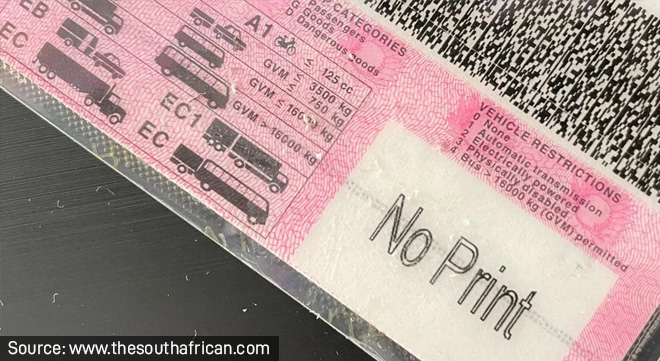Having a professional driving permit (PrDP) would not have prevented the driver of a truck from being hijacked at gunpoint, the Non-life Insurance Division of the National Financial Ombud Scheme (NFO) has ruled.
The NFO adjudicated a matter in which an insurance company rejected a claim for the loss of a vehicle on the basis that the driver did not have a valid PrDP at the time of the hijacking. The driver, however, had a valid driver’s licence.
According to the insurer, the vehicle should not have been on the road with the said driver because his PrDP had expired and had not been renewed. The insurer also said that public policy must be considered. If the insurer were to uphold claims for incidents that arise where the law has been broken, it would mean the company was condoning the breaking of the law.
The recommendation issued by the Non-life Insurance Division stated that the matter did not turn on this aspect. The issue is one of materiality, in this case, whether the lack of a valid PrDP by the driver at the time of the hijacking was material to the loss. Although the insurer’s argument was that the insured breached the policy requirement for a valid PrDP, the office was of the view that it is crucial to assess the nature of the breach.
Edite Teixeira-Mckinon, Lead Ombud of the Non-life Insurance Division, said: “In this instance, the driver’s actions did not contribute to the hijacking incident, and the expired PrDP is, therefore, merely a regulatory violation.
“Moreover, as the insurer argues that the absence of a valid PrDP is a material breach that warranted the rejection of the claim, the insurer must establish that the absence of a valid PrDP was directly related to the risk that materialised.
“If the driver’s actions did not contribute to the hijacking, then the absence of a valid PrDP is not material to the claim. The insurer must demonstrate how not having a valid PrDP led to the loss, rather than merely relying on the fact that a law was broken.”
Although the possession of a valid PrDP is a legal requirement aimed at enhancing road safety, Teixeira-Mckinon said it is crucial to apply the law contextually.
Moreover, materiality assesses whether the expired PrDP had a substantial impact on the loss.
“Given that the expired PrDP was unrelated to the hijacking and did not influence the event’s occurrence, no evidence to the contrary having been submitted, it must be considered immaterial to the claim.
“The loss occurred due to a criminal act of hijacking rather than a failure related to driver qualifications. Ultimately, even with an updated PrDP, the hijacking incident would have been unavoidable.”
The case of Everite Building Products Ltd v. Mutual & Federal Insurance Co Ltd [1995] 1 Lloyd’s Rep. 531 was cited in the recommendation to highlight that an insurance policy should be interpreted in a way that honours the intention of covering the risks associated with an insured event, rather than voiding coverage because of minor breaches unrelated to the risk.
“The court in this case emphasised the importance of aligning policy terms with the actual risk covered. In this dispute, the insurer’s rejection based on an expired PrDP, unrelated to the hijacking, contradicts this principle,” said Teixeira-Mckinon.
Although it is important to consider the insurer’s contention regarding public policy, it is essential to differentiate between systemic violations and isolated incidents. Penalising the complainant for a singular oversight does not align with the principles of fairness that are outlined in public policy, particularly given the lack of evidence connecting the infringement to the hijacking incident.
It was clear that the insurer’s arguments were rooted in a procedural shortcoming and overlooked the circumstances surrounding the loss. Upholding valid claims in instances where violations do not directly correlate with the loss aligns with principles of fairness and equity, she said.
The NFO’s recommendation requested that the insurer re-evaluate its position and settle the claim. The insurer did not accept the recommendation, and the matter was escalated for a provisional ruling.
The provisional ruling upheld the recommendation and added that the renewal of the expired permit would not require a further test of the driver’s driving skills; the renewal of the permit is an administrative process. A strict application of the policy wording would result in an unfair outcome of the complaint and, as a result, the fairness and equity jurisdiction needed to be invoked in deciding this matter.
The insurer agreed to abide by the provisional ruling and settled the claim.
The driver obtained a valid PrDP after the incident.





This case would have been different if people got hurt or there was an accident.